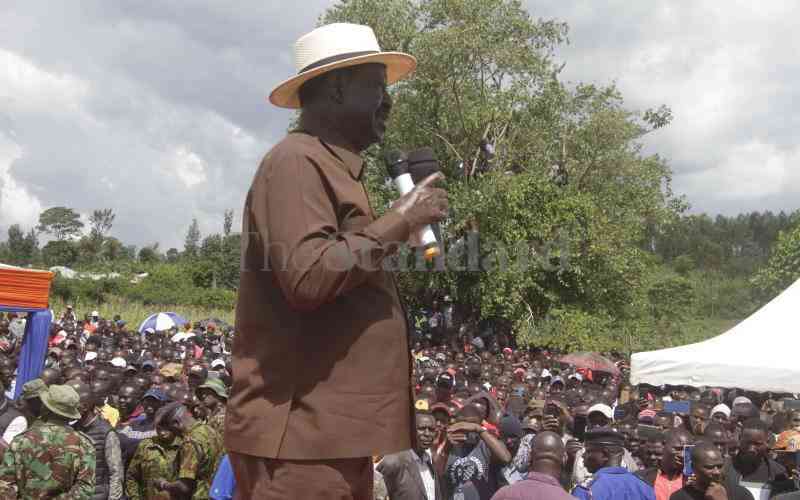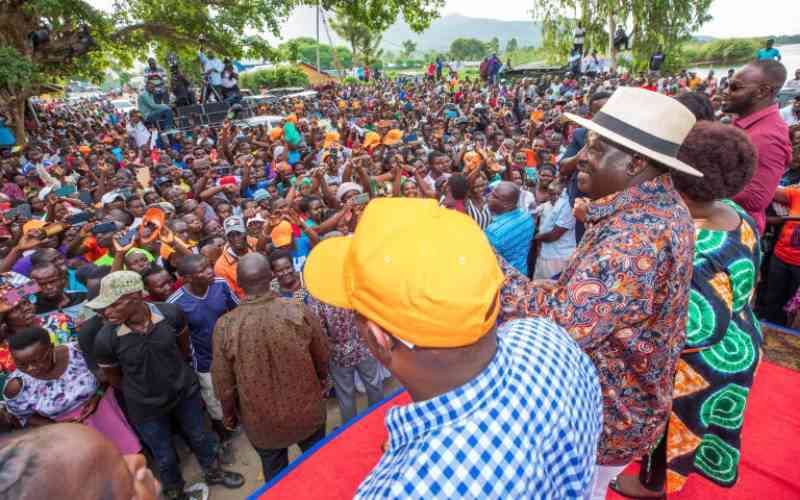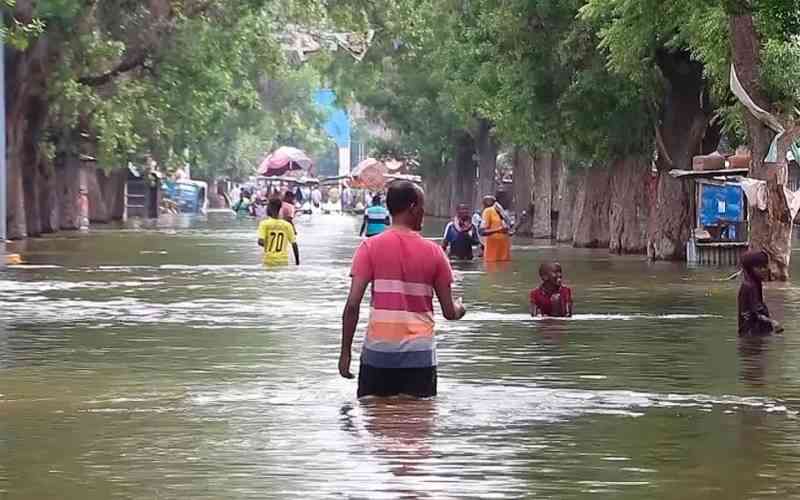ODM leader Raila Odinga has renewed his attacks on President William Ruto’s administration accusing it of failing to address the challenges faced by Kenyans.
He said the government has failed to address many economic and social challenges that have put many Kenyans on the edge, including floods that are ravaging several parts of the country.
This came as the ODM leader toured Migori County to drum up support for his party and preside over the listing of new members as part of his efforts to reverse the gains Ruto’s UDA party has made in the region during the numerous visits by the president and his allies.
Raila will also visit Kisumu and Busia counties next week as he steps up efforts to build grassroots support in his traditional strongholds.
As he continued with his quest to strengthen ODM, Raila poked holes in the handling of the floods by the government claiming it had not done enough to help the affected families.
The Azimio leader told the Kenya Kwanza government to stop blaming the former Jubilee administration for its failure.
“Right now there is hunger and other Kenyans are dying due to floods. These people are sleeping on the job,” Raila said.
Raila added: “The president had announced that El Niño rains would not be there and now that the rains have come, counties are not getting support from the government.”
He slammed Deputy President Rigathi Gachagua for claiming the government had disbursed funds to counties to help mitigate the effects of the heavy rains.
“The Deputy President is trying to blame the governors and lying that they were given money,” Raila said.
The former PM who proceeded to Nyatike constituency for an ODM new members registration drive asked youths in Kuria to join ODM and remain united.
While at Macalder in Nyatike where he conducted a member registration drive, Raila pointed out that it was too early for people to start campaigning for the next elections. “I am advising ODM leaders to start campaigning in 2026.
Raila dismissed UDA’s visits to the region. He also dismissed claims the ruling party had registered over 100, 000 in Nyanza. He called on residents to remain in ODM.
Migori Governor Ochilo Ayacko, Suna East MP Junet Mohammed, Senator Eddy Oketch, Nyatike MP Tom Odege, Awendo MP Walter Owino, Suna West MP Peter Masara, and Migori Woman Representative Fatuma Mohammed, who accompanied Raila said Kenyans are suffering under the Ruto regime.
“Raila loves everyone. He is ever ready to stand with Kenyans no matter the situation,” Ayacko said.
Minority Leader in the National Assembly Junet asked the president to respect Raila.
Junet who has stayed out of the limelight after the 2022 elections said he has a major assignment that has been given to him by Raila.
“I was on the bench, resting. Now I have come back to the field. Raila, as the coach, has told us to come back to the field and play,” Junet said.
He downplayed calls for them to jump ship saying; “Those who think they can change my direction will wait until Jesus comes back.”
Junet held that Raila would not retire from politics despite pressure from some people.
“As ODM and Azimio, our leader is Raila Odinga. Let those people do what they want but we will remain in ODM and Raila will remain to be our leader,” he said. By Anne Atieno, The Standard








